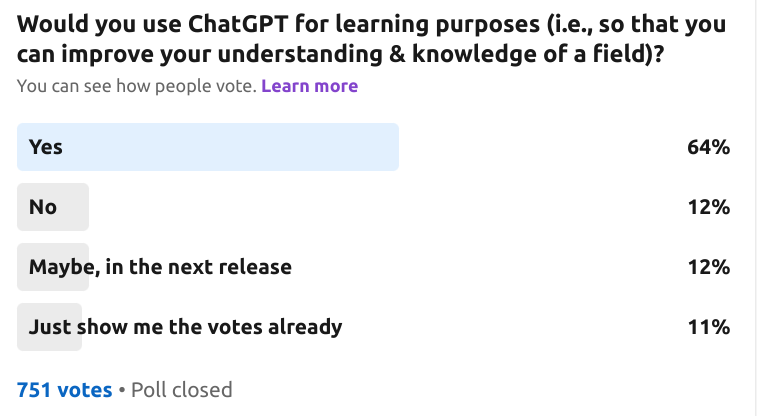The Cultivation of Detest in Our Fellow Human Beings

The title of this article may seem a bit exaggerated but bear with me for a few minutes before you pass judgment on it. By the way, I'm not referring to beBee or any other free-speech platform, but the world at large, at the time of this writing.
So, why would someone detest someone else? Apart from cases where the former is threatened by the latter (e.g., when the latter trespasses the former's personal space or violates his rights, especially in a provocative manner), this doesn't happen normally. Unless, of course, there are ideologies at play. Now, you may think that you are immune to such petty divisions and that you love your neighbor like yourself, even if that person follows a different worldview. Well, when was it the last time you put this to the test? By the way, ideologies can be very mundane, such as subscribing to this or the other variant of a scientific theory. Many people in the Physics community are divided by their theories (or interpretations of them) about the world. Also, today many people are divided by their views on what constitutes proper behavior towards the whole covid-19 situation. So much so that from both sides of the fence, the supporters of this or the other view tend to think of the others as idiots or worse. Never mind the fact that some people may have changed sides over the past few months and that, given different circumstances, they might be on the other side of the fence.
I'm not going to try to convince you of what side of this (or any other) polarization of a view is better. You can research that on your own. However, I'd like to focus on the sentiment that lingers even after the views are discussed. It's usually a negative sentiment since no clear conclusion is reached most of the time (usually due to practical reasons). Gradually, people who disagree on an important matter start to detest each other. So much so that having a face to face conversation becomes harder and harder since neither one is willing to listen or entertain the other person's point of view. This situation is reminiscent of being in the trenches during World War I battles or behind other barricades in more modern warfare. Who would have thought that these shields of protection would become walls inside our minds!
People always had their differences, but they were mature enough to deal with them and often overcome them or reach some peaceful solution. Few times in history did we have the equivalent of a cold war where we thought of the people on the other side of the fence as being evil. There is no doubt in my mind that evil exists in this world, but I'm skeptical as to whether it manifests fully on the people with whom I disagree. That's why I often follow people with a completely different worldview and try to find some merit in their writings. Upon doing so, I discover that they are not as extreme as I thought and that there are some points we both agree on, even if our disagreement on a specific topic lingers. This realization wouldn't have been possible if I detested them.
Various verses from the Bible often come to mind when I contemplate this topic. These make great quotes to live by, especially today. For example, at James 2:13, we see "For judgment will be merciless to one who has shown no mercy; mercy triumphs over judgment," while at John 5:22, we encounter "For not even the Father judges anyone, but He has given all judgment to the Son."
I mention these because it's often the misuse of our judgment ability that is the seed of detest. If left unattended, this can spread and grow in us, making us even detest our whole species and view the death of innocents as a necessary evil. And when we start looking at other lives (especially lives of sentient beings) as something we can put on a mathematical formula, then we may have gone too far. Perhaps that's why in the Kaballa, the tree of life, which often is used to summarize the presence of the divine in us, is comprised of three columns with Judgment (Severity) being on the one side and Mercy (Love) on the other. If only we'd try to balance the two with the column of Harmony (Consciousness, Equilibrium) instead of allowing divisions to reign supreme either within or outside ourselves!
Articoli di Zacharias 🐝 Voulgaris
Visualizza il blog
Lately, I’ve been thinking a lot about podcasts. I suppose this has to do with the zeitgeist of quic ...

Source: LinkedIn · For the past three years, I've had an aversion towards LinkedIn, mostly because o ...

Whether it's a solar panel or a rigged hamster wheel, you can make a first step in harnessing your p ...
Professionisti correlati
Potresti essere interessato a questi lavori
-
Manutentore
Trovato in: Talent IT C2 - 5 giorni fa
Baxter Grosotto, Italia A tempo pienoVantive: A New Company Built On Our Legacy · Baxter is on a journey to separate our ~$5B Kidney Care segment into a standalone company. Vantive* will build on our nearly 70-year legacy in acute therapies and home and in-center dialysis to provide best-in-class care to the people ...
-
RME Technician
Trovato in: Jooble IT O C2 - 19 ore fa
Amazon Padova, ItaliaJob ID: | Amazon Italia Transport Srl · DESCRIPTION · Descrizione · Il team Reliability Maintenance Engineering (RME) è fondamentale ad Amazon per monitorare tutte le attività operative: è grazie a questo team che viene garantito il corretto funzionamento di macchinari critici ...
-
Beauty Advisor
Trovato in: Talent IT C2 - 5 giorni fa
Sephora Milan, ItaliaAt Sephora, "beauty" rhymes with "creativity": Always nosing out the hottest brands and spotting the freshest trends and products, we are constantly bubbling with ideas and creativity, to offer our customers an amazing beauty selection. · At Sephora, "learning" rhymes with "fun": ...




Commenti
Joyce 🐝 Bowen Brand Ambassador @ beBee
3 anni fa #8
Joyce 🐝 Bowen Brand Ambassador @ beBee
3 anni fa #7
More importantly--it is exactly what you are seeing in the general population now. Democrats/Republicans Pro-vaxxer/Anit-Vaxxers and on and on. Damn--I have to get a job with those people. They are just too good at this.
Zacharias 🐝 Voulgaris
3 anni fa #6
I remember seeing that in a couple of the companies I worked for, back in Seattle. Not great, but I understand why some organizations have it, to maintain stability and coherence in their work force. Not my cup of tea though :-)
Joyce 🐝 Bowen Brand Ambassador @ beBee
3 anni fa #5
Greg Rolfe
3 anni fa #4
Pascal Derrien I find that you are very correct in your interpretation of the situation. It seems that there is far more condemnation than I am used to seeing.
Joyce 🐝 Bowen Brand Ambassador @ beBee
3 anni fa #3
Pascal Derrien
3 anni fa #2
Harvey Lloyd
3 anni fa #1